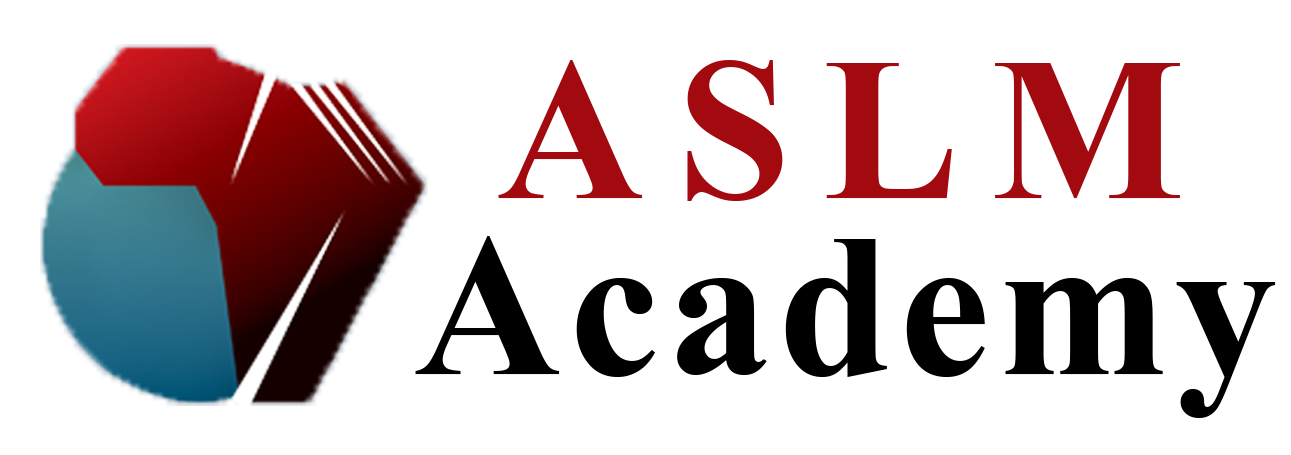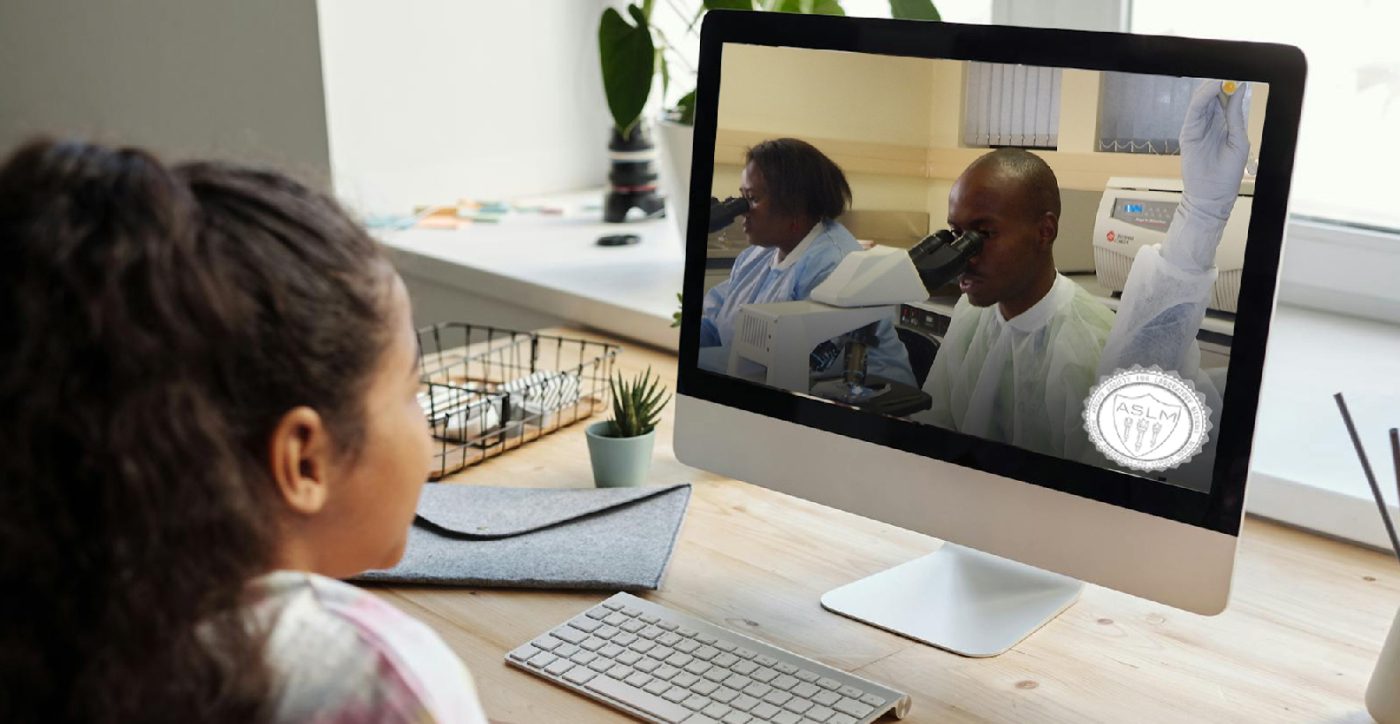The ASLM Academy, an initiative of the African Society for Laboratory Medicine (ASLM), was established to address the critical shortage of skilled laboratory professionals in Africa. Recognizing that laboratory services are essential for effective healthcare, the Academy’s mission is to empower laboratory professionals through high-quality education, accreditation, and capacity-building programs, ultimately enhancing diagnostic capabilities and healthcare outcomes across the continent. Here’s an in-depth overview of the ASLM Academy’s work, strategy, and impact:
Vision and Strategic Goals
The ASLM Academy envisions itself as a self-sustaining center of excellence by 2030, dedicated to empowering laboratory professionals with the skills needed to tackle Africa’s unique healthcare challenges. Its mission is to “transform laboratory testing and diagnostics across Africa through learning and development,” fostering a skilled, ethical, and innovative workforce that supports better patient care.
Key Initiatives and Offerings
1. Certified Laboratory Scientist Program:
The Academy’s flagship program is the Certified Laboratory Scientist Accreditation, a comprehensive certification that professionalizes laboratory science by setting a recognized standard for laboratory expertise. This program aims to enhance the credibility and career pathways of laboratory professionals across Africa, helping them gain qualifications that meet international standards.
The accreditation covers a range of essential skills, from basic laboratory practices to advanced diagnostic techniques, creating a standardized, high-quality training pathway for laboratory professionals at various career stages.
2. Diverse Learning Journeys:
In addition to the primary accreditation, the ASLM Academy offers tailored, continuous professional development journeys to meet the evolving needs of laboratory professionals. These include:
- Leadership and Management Training: Developing leaders within laboratory services who can manage teams, resources, and operations effectively.
- Technical Skill Development: Focused courses on specialized areas, such as molecular diagnostics, data analytics, artificial intelligence in diagnostics, and multi-disease diagnostics.
- Quality Management and Biosafety: Programs that reinforce safety and quality standards are critical for labs aiming to achieve accreditation.
- Emergency Preparedness and Response: Training that equips professionals to respond to public health emergencies, such as infectious disease outbreaks.
These learning journeys offer both online and in-person formats, making education accessible and adaptable to different learning needs.
3. Flexible and Accessible Training Model:
The Academy employs a blended learning approach, offering both online modules and face-to-face workshops. This flexibility allows laboratory professionals from various regions, including remote areas, to access high-quality training tailored to their schedules and learning preferences.
The Academy’s online platform hosts interactive modules, video lectures, and assessments, making it convenient for participants to engage with materials at their own pace.
4. Financial Accessibility and Learner Support:
Recognizing financial constraints faced by many professionals, the Academy has established a Learner Fund to offer scholarships and subsidies for those pursuing premium learning journeys. This ensures that financial barriers do not prevent access to essential training.
The Academy’s commitment to affordability is evident in its provision of free, donor-funded courses, especially in areas like HIV/AIDS, TB, and COVID-19 diagnostics, which remain accessible to all learners.
Strategic Priorities
The ASLM Academy’s strategy for 2025-2030 is organized around six strategic priorities:
1. Transitioning to a self-sustaining model:
Moving away from dependency on donor funding, the Academy is building a sustainable business model with diversified revenue streams. This includes membership fees, course fees for premium programs, corporate partnerships, and consultancy services.
This shift aims to ensure the Academy’s long-term viability, allowing it to continuously invest in program development and infrastructure.
2. Becoming a Thought Leader:
The Academy aims to shape the future of laboratory medicine by conducting research, sharing insights, and actively participating in discussions about the profession’s evolution. Through publications, conferences, and partnerships, ASLM Academy positions itself as an authority on laboratory medicine best practices in Africa.
It also seeks to define the “Laboratory Professional of the Future” by identifying key competencies and responding to emerging trends, such as digital health, point-of-care diagnostics, and automation.
3. Expanding Capacity and Capability:
ASLM Academy is committed to being the “go-to” partner for laboratory workforce development, addressing the skills gap across Africa. The Academy regularly assesses workforce needs and adapts its offerings to ensure laboratory professionals have the competencies needed to meet evolving health demands.
4. Providing Financial Support for Learners:
By establishing a dedicated Learner Fund, ASLM Academy ensures that high-quality education remains accessible. This fund is supported by donations, corporate partnerships, and a portion of revenue from premium programs, and it offers scholarships to eligible learners, promoting inclusivity.
Impact and Achievements
Since its inception, the ASLM Academy has:
- Engaged over 17,000 professionals in training and educational events.
- Offered 200+ certifications in areas such as antimicrobial resistance (AMR) surveillance and COVID-19 diagnostics.
- Developed partnerships with key stakeholders, including Africa CDC, the US CDC, PEPFAR, and the Bill & Melinda Gates Foundation, which have been critical in expanding the Academy’s reach and influence.
By enhancing diagnostic accuracy and public health response through well-trained professionals, the ASLM Academy is contributing to improved healthcare systems across Africa. As it continues to grow, the Academy’s commitment to professionalization, innovation, and accessibility positions it as a catalyst for sustainable healthcare transformation across the continent.

